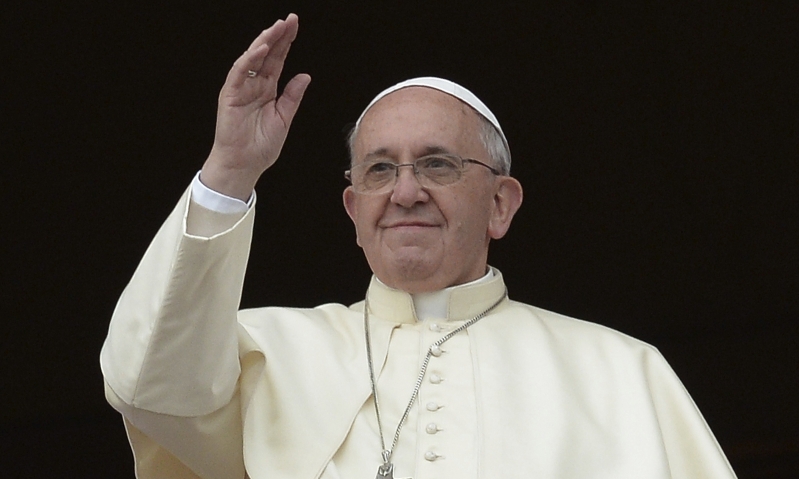
Pope Francis recently came under fire for comments he made regarding violence against religious minorities Iraq and the U.S. government's decision to authorize airstrikes aimed at stopping the Islamic State of Iraq and Syria (ISIS).
"In these cases where there is an unjust aggression, I can only say this: It is licit to stop the unjust aggressor. I underline the verb: stop. I do not say bomb, make war, I say stop by some means. With what means can they be stopped? These have to be evaluated. To stop the unjust aggressor is licit," the Pope stated.
"One nation alone cannot judge how to stop an unjust aggressor," Francis concluded. "After the Second World War there was the idea of the United Nations. It is there that this should be discussed. Is there an unjust aggressor? It would seem there is. How do we stop him? Only that, nothing more."
Following his comments, the media lit up with criticism, with many asserting the pontiff was promoting a "new crusade" and approving of war- a move unprecedented by Catholic Church leaders, as the Vatican has vehemently opposed any military intervention in recent years.
Catholic Church official teaching also advocates a "Just War Theory" emphasized by Saint Augustine and Saint Thomas Aquinas. The theory states the decision for war rests on four criteria that must be met: all other efforts have been exhausted, the damage inflicted by the aggressor is "lasting, grave, and certain", real prospects for success, and the outcome to be greater than the original evil.
However, David M. Perry, an associate professor of history at Dominican University in Illinois, argues that Pope Francis is not calling for a crusade against Middle Eastern people. Rather, he's asserting the historically-based truth that taking action to stop evil is just.
"This idea of justified violence, even from Catholics, chiefly emerged from the writing of St. Augustine (354-430). As Matthew Gabriele, associate professor of medieval studies at Virginia Tech, writes: 'Augustine argued that war was never desirable but was sometimes necessary. We must protect those who suffer from unjust aggression. If that could be accomplished without war, so much the better, but force could be used by legitimate authorities as a last resort. The end goal, however, was always -- and simply -- lasting peace.'"
Perry also addresses Francis' comments on the necessity of gathering judgment from multiple nations before entering into a war:
"Such pursuit of multiple perspectives to ward off bias is also Augustinian. In "On Christian Doctrine," St. Augustine argued that reading the Bible required special training because though the book contains all the truths of the universe, humans (flawed creatures that we are) are far too likely to assume that whatever we think is good is also what God thinks is good. To counteract this, St. Augustine prescribed a strict intellectual diet of the best liberal arts and science education the late Roman world could provide."
"Multiple perspectives help us discern what is truly just from what might just be convenient. In a way, that's what Francis is doing with his words, too. He's concerned that any individual leader or nation is far too likely to assume that someone with whom they disagree is unjust, and thus the principles of stopping unjust action instead becomes a tool for warmongering. Instead, he argues, we should try to find consensus before acting, collectively, to put an end to atrocity."
Perry writes that while Pope Francis promotes peace through dialogue and understanding, alternative methods are required in extreme situations.
"When there is great suffering in the world, as is being inflicted on religious and ethnic minorities in areas controlled by ISIS, then Francis says one must act, while also drawing on both the ancient idea of justified war and the modern concept of international cooperation."
"The question, of course, is whether in a digital age -- when misinformation and misunderstanding spreads so fast -- Pope Francis can somehow find true harmony between old and new. His ability to do so will determine the lessons his papacy ultimately hands down for posterity."







